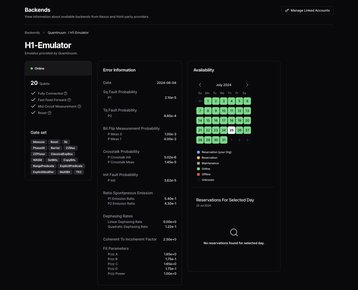Quantum computing firm Quantinuum has announced the beta availability of its quantum computing platform.
Developed to help streamline the deployment of quantum algorithms, the platform, dubbed Quantinuum Nexus, allows users to run, track, and manage resources across multiple quantum backends.
Featuring a cloud-hosted and preconfigured JupyterHub environment, Nexus provides a dedicated Quantinuum H-Series emulator, enabling users and organizations without access to Quantinuum’s H-Series hardware to take advantage of the capabilities offered by the quantum system.
The Nexus platform is fully integrated with the H-Series Quantum Processor and the company said it will introduce a “more powerful” cloud-based version of its compiler, supported by the latest version of quantum software development kit TKET.
An API interface is also provided via the platform, which Quantinuum said will improve integration with third-party partners, providing users with an easier way to access the company’s tools.
Quantinuum currently has two ion trap quantum computing offerings, the System Model H1 and the System Model H2, with both the H1-1 and the H2-1 available to customers. The Quantinuum H1 contains 20 fully connected qubits that sit across five Quantum Charged Coupled Device zones.
In a blog post introducing the platform, Quantinuum said that with Nexus, the company is “setting a new standard in quantum Platform-as-a-Service providers, empowering users with cutting-edge tools and seamless integration for quantum computing advancements.”
Last week it was reported that Quantinuum’s parent company Honeywell was considering an IPO for the quantum subsidiary, reportedly seeking a valuation of around $10 billion.







